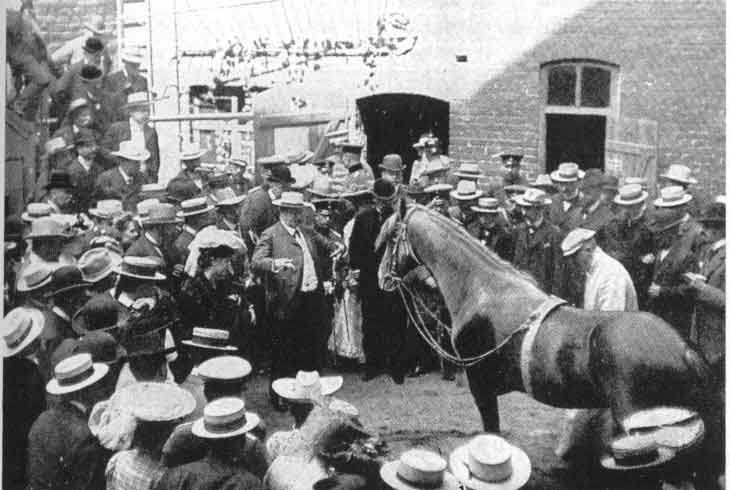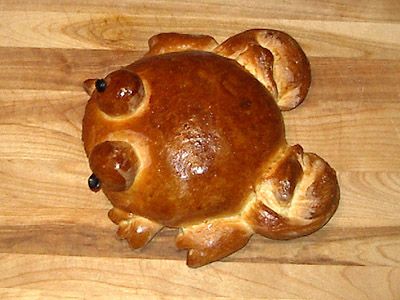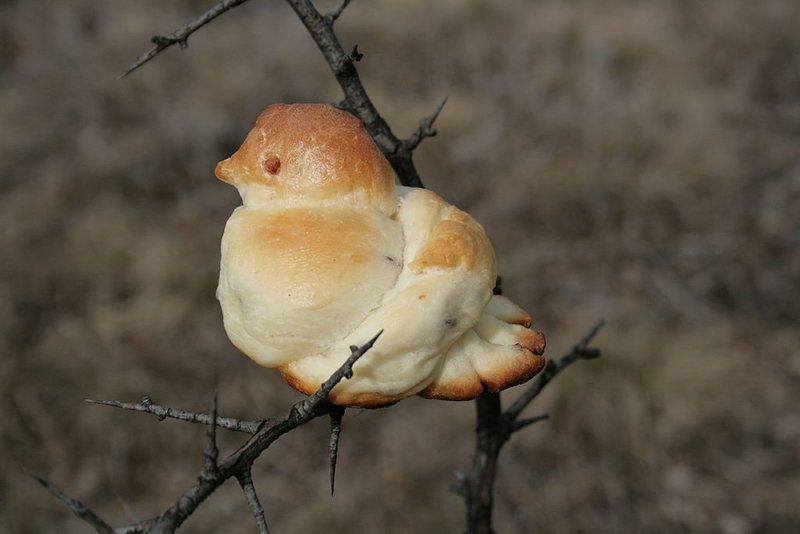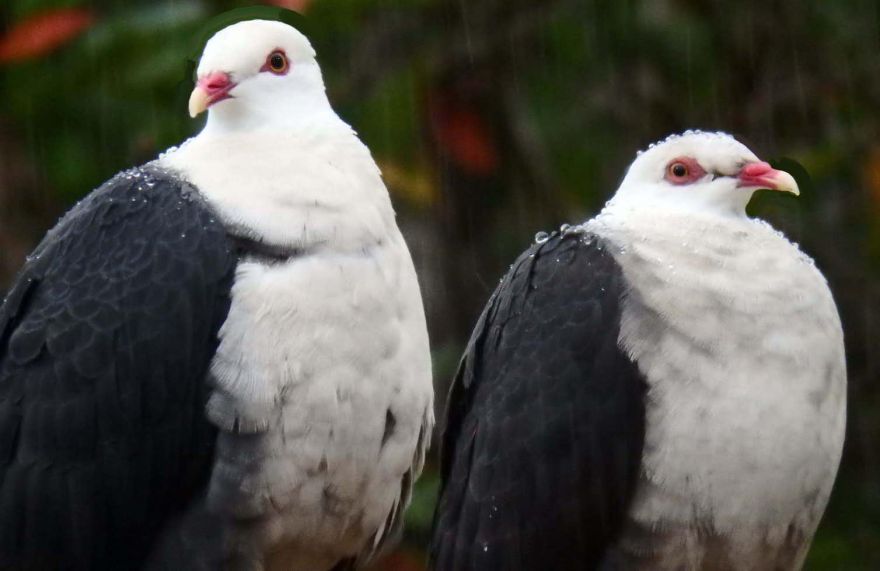Neatorama |
- A Very Grumpy Cat
- In Antarctica, It’s Not Easy Being Green
- Are We Turning Into A Germaphobe Society?
- The Origin and History of Comfort Food
- Meet The Horse Who Could Allegedly Do Math
- Men Successfully Save Car That Was Swept Out To Sea
- Turning Human Cells Invisible
- The Frog Bread And Other Artful Breads You Can Bake At Home
- What Australian Birds Can Teach Us About Long-Term Relationships
- Simple Kitchen Hacks You Might Consider Doing
- Babies Like It When They Are Imitated
- It’s Harry Potter… But In German, And With Indian TV Drama Effects
- The International Photography Award Winners
- The Last Person in the US to Receive a Civil War Pension Has Died
- How to Be a Pirate
| Posted: 04 Jun 2020 05:52 AM PDT
|
| In Antarctica, It’s Not Easy Being Green Posted: 04 Jun 2020 05:52 AM PDT
We think of Antarctica as a barren place devoid of plant life due to all the snow and ice, but the continent is actually home to several species of plants: algae, mosses, lichens, and even grass. Sure, only one percent of Antarctica is warm enough for plants to grow, but it's a big continent. Scientists are turning their attention to algae that grows on snow. It seems weird, but it works.
You know what they say, "Watch out where the penguins go; don't you eat that green snow." Or something like that. Anyway, Antarctica also has pink, orange, and red algae that grow on snow. Read about that algae and how it fits into the delicate ecosystem in Antarctica at Atlas Obscura. |
| Are We Turning Into A Germaphobe Society? Posted: 03 Jun 2020 11:27 PM PDT
Because of the recent events that have happened in the previous months, we have learned to become extra careful with our hygiene. We now wash our hands more, and disinfect everything that we touch. It is good that we are now fixated on cleanliness... But what if this anxiety crystallizes into a long-term, habitual fear of germs? I believe that such a cultural shift wouldn't just be unhelpful, it would potentially be a danger to public health — and to the broader social sphere. Sophie Strosberg lays down the many risks that could happen in a germaphobe society, where individual health care is emphasized more than broader public health goals. See her article over at Undark. (Image Credit: congerdesign/ Pixabay) |
| The Origin and History of Comfort Food Posted: 03 Jun 2020 11:27 PM PDT
Whether you're sad because you've failed a test, or lonely because your boyfriend or girlfriend broke up with you, there's something that is always waiting for you, and that is comfort food - food that will cheer you up and raise your spirits. But where did the term come from? The answer takes us back to 1970, where a young actress named Liza Minelli first coined the phrase, "comfort food." "Comfort food is anything you just yum, yum, yum," she told syndicated newspaper food columnist Johna Blinn, smacking her lips together. She was daydreaming of a hamburger with all the fixins. Before Minnelli, comfort food had been the bland fare of the young, the elderly, and the ill. In the decade after, the two words grew slowly into an inescapable food fad, and now, a half-century later, comfort food has become the trend that will never end. What were the types of comfort food back then, and how did the term change over time? JSTOR Daily leads us on a journey towards a brief history of comfort food. Check out the article over at the site. (Image Credit: mp1746/ Pixabay) |
| Meet The Horse Who Could Allegedly Do Math Posted: 03 Jun 2020 11:26 PM PDT
Berlin, Germany — an old high school mathematics teacher stood at the center of a paved courtyard, where a small crowd had gathered to watch. The old teacher, however, was not who the audience came for, but rather the one beside him, a large Russian trotting horse. What is so special about this horse, you may ask? This horse can allegedly do math. For more than a decade, Wilhelm von Osten, the instructor, had helped Clever Hans, the horse, to develop a number of cognitive skills. von Osten would ask a question, and Hans would answer, correctly, by nodding his head, for a "yes" or a "no", or by tapping his foot to indicate numbers. Clever Hans could show directions by turning his head, could differentiate between "left" and "right", identify colors, read the clock, recognize and identify playing cards, and understand a large number of different concepts. Not only could Hans count, he could perform arithmetic far beyond the fundamentals. "How much is 2/5 plus 1/2?", von Osten would ask. Hans would answer with nine taps followed by another ten to indicate that the answer was 9/10. "What is the square root of sixteen?" Hans would make four taps. "What are the factors of 28?" Hans would tap consecutively 2, 4, 7, 14, 28. Hans wasn't just limited to arithmetic. He is also shown to have an excellent memory, as well as the ability to spell words and names of people via taps. But can it really be true? Intrigued by horse's cognitive abilities, psychologists, zoologists, as well as other experts in various fields, set out to investigate if Hans was the real deal. It turned out that Hans wasn't as smart as the reports claim to be. But he was still good at something, and that something was observing. More details about this fascinating story over at Amusing Planet. (Image Credit: Karl Krall/ Wikimedia Commons) |
| Men Successfully Save Car That Was Swept Out To Sea Posted: 03 Jun 2020 11:26 PM PDT
Kent, UK — On May 28, people on the Whitstable Beach were welcomed by a strange sight: a car was swept out to sea, and it was already beginning to submerge. Lee Dolby, a local, managed to catch the incident on camera. In the clip, you can see a man whizzing around the car on a jet ski while Dolby zooms in on the car, which by this point is bobbing around in the sea. Another man appears wearing a life jacket and attempts to get hold of the car, but has no success. 'That geezer's just lost his car,' Dolby can be heard saying in the clip. As the severity of the situation begins to dawn on everyone, a third person appears with a rope and wades into the water to attach it to the front of the car. In the end, Dolby and his son, along with other people in the scene, were able to retrieve the Volkswagen and drag it back on land. The car won't start, however. The said car apparently parked a little too close to the sea, which is why it got dragged off the waves. I guess the car badly needed a carwash. (Image Credit: Deadline News/ UNILAD) |
| Posted: 03 Jun 2020 11:26 PM PDT
Cephalopods can be considered as one of the coolest (if not the coolest) groups of animals in the entire planet, because of their ability to turn invisible. Thanks to their special cells that change how light scatters off to them, cephalopods such as the octopus, the squid, and the cuttlefish, can do such a feat. But could this ability be transferred to our own cells? That was what the new study set out to investigate. The researchers focused on a particular species of squid called Doryteuthis opalescens, which can change a stripe along its body from white to transparent. This stripe is made up of reflective cells called leucophores, which themselves contain particles called leucosomes that are made up of proteins called reflectins. Altogether, this structure is what allows the squids to scatter light, producing iridescent camouflage. Turns out we could introduce this camouflage mechanism to our own body cells. More of this study over at New Atlas. (Image Credit: Atouli Chatterjee / UC/ New Atlas) |
| The Frog Bread And Other Artful Breads You Can Bake At Home Posted: 03 Jun 2020 06:46 PM PDT
On January 18, 2005, the recipe of the Frog Bread was released online via the Fresh Loaf website. As the name implies, the bread is supposed to take the shape of a frog. Not only does the bread look good, it also tastes amazing (at least, that's what one of the commenters said on the Fresh Loaf website). Now, after over 15 years, someone has discovered the recipe and made it viral online, as baking has become a new hobby for many people who stay indoors. …thousands have crafted their own golden, crusty amphibians, proudly posting the results despite distended eyes and spiky limbs. The Frog Bread is not only the artistic bread that you can bake while you stay indoors. Atlas Obscura also features other artistic breads like the Zhavoronki, and the Hiyoko. Check them out over at the site. (Image Credit: The Fresh Loaf)
(Image Credit: Atlas Obscura) |
| What Australian Birds Can Teach Us About Long-Term Relationships Posted: 03 Jun 2020 06:46 PM PDT
Love, sex, and romance will always be a hot topic for us humans, as we are sexual beings. Being a sexual being, however, is not a characteristic unique to humans; it also is true for birds, and so not only ornithologists can learn something from these creatures, but also the average man and woman. For these species, choosing the right partner is a driver of evolution and affects the survival and success of a bird and its offspring. There is no better place than Australia to observe and study strategies for bird mate choice. Modern parrots and songbirds are Gondwanan creations – they first evolved in Australia and only much later populated the rest of the world. Different types of birds have different dynamics when it comes to mating relationships. In some bird species, the male bird courts the female bird, and then they proceed to mate. The male, however, does not stick around after mating to care for their offspring. Other bird species, on the other hand, have this thing called "lovers for a season," where a male and a female bird brood for a season and then move on. Both of these, however, only constitute a small percentage of bird species. More than 90% of birds worldwide fall into this "joint parenting" category – and in Australia, many of them stay together for a long time. Indeed, Australia is a hotspot for these cooperative and long-term affairs. This staggering figure has no equal in the animal kingdom. Even among mammals, couples are rare; only 5% of all mammals, including humans, pair up and raise kids together. So how do long-bonding Australian birds choose partners, and what's their secret to relationship success? Details over at The Conversation. (Image Credit: Gisela Kaplan/ The Conversation) |
| Simple Kitchen Hacks You Might Consider Doing Posted: 03 Jun 2020 06:46 PM PDT
Having a hard time grating that sticky cheese? Frustrated that your cutting board slips all over your counter? Don't want to take a long time peeling potatoes? These are just some of the frustrating scenarios we can have while in the kitchen. Thankfully, we humans are very intelligent beings and we look constantly for ways to make our life easier and more comfortable. Mental Floss compiles a dozen of simple kitchen hacks that will surely save some of your time. Check it out over at the site. (Image Credit: Daria_Yakovleva/ Pixabay) |
| Babies Like It When They Are Imitated Posted: 03 Jun 2020 06:46 PM PDT
Studying a baby's mind may perhaps be one of the most difficult tasks in the field of psychology. After all, unlike adults, babies can't speak up to describe what their thoughts or emotions are. At this age, the channels of communication are only limited to a few syllables, laughs, giggles, and cries. Nevertheless, we adults strive to understand how our minds develop from this age to what they are today. A new clue comes from research recently published in PLOS One, which shows that six-month-olds can recognize when they are being imitated. According to the study, the experience of being imitated provides infants the scaffolding for their social cognition. When infants see their actions mimicked, it leads them to realize that these actions have social consequences. They learn that movements, vocalizations, and facial expressions cause others around them to behave in certain ways. It's much like how they'll later experiment with cause and effect by banging about blocks. [...] The researchers found that the closer they emulated a baby, the longer they held his or her attention. Such imitation was also correlated with more smiling and a greater desire to approach the researcher. More details about this over at BigThink. (Video Credit: LundUniversity/ YouTube) |
| It’s Harry Potter… But In German, And With Indian TV Drama Effects Posted: 03 Jun 2020 06:46 PM PDT
Indian soap operas are known for their overuse of transition effects, which makes the scenes dramatic, but at the same time funny, and cringy. It's a buffet of emotions in just one scene! But what happens when you put the same transition effects on an English movie? The movie becomes one heck of a masterpiece. What are your thoughts about this one? Via 9GAG (Video Credit: PlzDontSueColdmirror/ YouTube) |
| The International Photography Award Winners Posted: 03 Jun 2020 05:00 PM PDT
The International Photography Awards has anounced the winners of their latest competition, which used the theme OneShot: Movement. The Photographer of the Year Award, the highest honor in the competition, goes to Anne Mason-Hoerter of Germany for the above image, titled Wild Carrots.
See first, second, and third place winners in the categories of Fine Art, Nature, People, Street Photography, and Technology/Machine, plus honorable mentions, at the winners page. -via Digg |
| The Last Person in the US to Receive a Civil War Pension Has Died Posted: 03 Jun 2020 04:59 PM PDT
Mose Triplett (1846-1938) initially enlisted in the Confederate Army, then defected in 1864 to the United States, where he served in the US Army for the remainder of the Civil War. This latter action qualified him for a pension from the federal government. In 1930, at the age of 83, he sired a daughter from his wife, who was 50 years younger than him. That child, Irene Triplett, had mental disabilities. She thus qualified to inherit his pension of $73.13 per month. When she died last Sunday at the age of 90, she was the last person to receive a pension related to Civil War service from the US government. -via Kurt Schlichter | Photo: Facebook |
| Posted: 03 Jun 2020 07:01 AM PDT
|
| You are subscribed to email updates from Neatorama. To stop receiving these emails, you may unsubscribe now. | Email delivery powered by Google |
| Google, 1600 Amphitheatre Parkway, Mountain View, CA 94043, United States | |
















No comments:
Post a Comment
Keep a civil tongue.